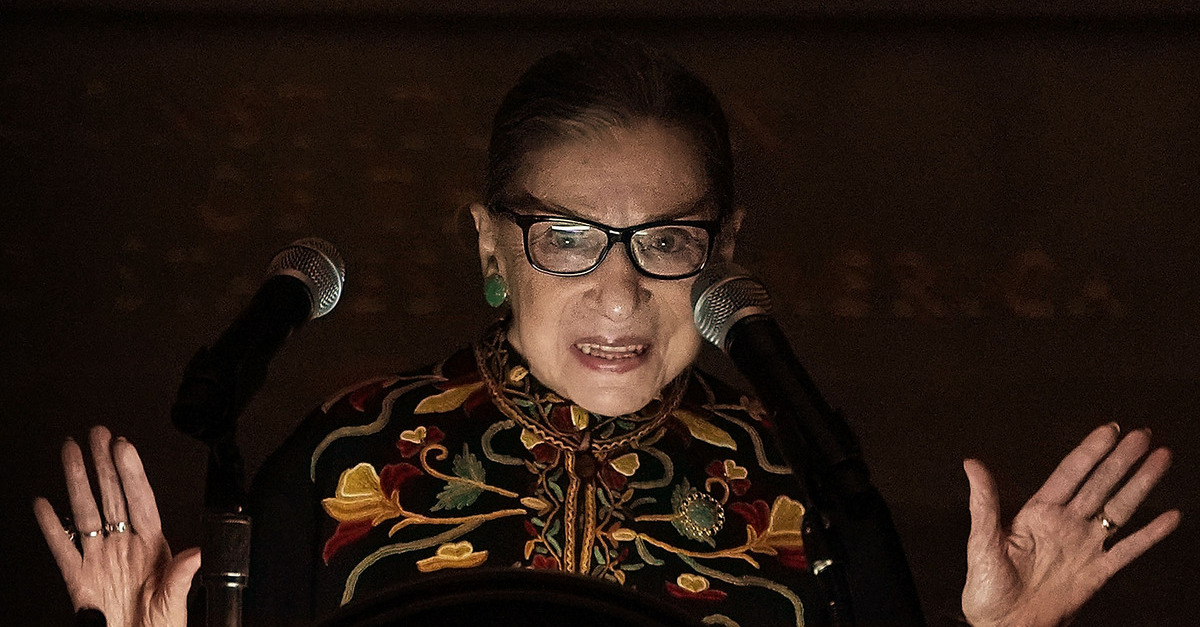
Don’t look now, but SCOTUS’ liberal wing is all kinds of fired up. Wednesday, the Court ruled 5 to 4 in a case involving computer hackers, a David-and-Goliath dispute, and the true essence of consent; Justices Stephen Breyer, Sonia Sotomayor, Elena Kagan, and Ruth Bader Ginsburg were so irritated with the majority’s ruling that each of them penned their very own dissent.
The case is Lamps Plus, Inc. v. Varela, a dispute between the victim of a data breach and his employer, a company that sells light fixtures. The case began in 2016, when a hacker posing as a company official convinced an employee to disclose tax filings of about 1,300 Lamps Plus workers. The hacker then used his ill-gotten data to file a fraudulent tax return in the name of Frank Varela. Varela, who was a Lamps Plus employee, filed a class action lawsuit seeking compensation for himself and the other victims of the data breach.
Lamps Plus argued that a class action lawsuit violates its arbitration agreement. According to the company, Varela shouldn’t have brought his claim to a courtroom and shouldn’t be permitted to band together with any other workers. On Wednesday, a narrow SCOTUS majority ruled in favor of Lamps Plus, holding that because Lamps Plus hadn’t specifically agreed to a group or “class” arbitration, Varela must proceed alone in his lawsuit. If the other affected parties wish to bring their own separate cases, they’re free to do so, but Varela can’t do it for them.
Ginsburg’s dissent was a thorough thrashing of the majority and its willful blindness toward imbalances of power.
1. She Insulted the Majority in Her Very First Sentence
It was immediately clear that RBG was not playing. Right out of the gate, she said she was writing a separate dissent not to parse out any complex legal issues, but rather, “to emphasize once again how treacherously the Court has strayed from the principle that ‘arbitration is a matter of consent, not coercion.’” In the world of the Supreme Court, disagreements are not uncommon; using the word “treacherously” when describing how the Court has missed the point is a lot less common.
2. She Blamed the Court for Being Clueless About Arbitration
Writing for the majority, Chief Justice John Roberts said that the idea of class arbitrations conflicted with basic goals of arbitration—to resolve disputes simply and quickly. Ginsburg responded in her dissent with what amounted to, “Bro, do you even arbitrate?” RBG instructed the majority that that the entire purpose of arbitration is to provide a remedy to parties who are on equal footing – not those who operate at the mercy of one another.
Ginsburg went on to lash out at SCOTUS for having, for years now, mismanaged the Federal Arbitration Act (FAA). “In relatively recent years,” she wrote, “[the Supreme Court] has routinely deployed the law to deny to employees and consumers effective relief against powerful economic entities.”
3. She Reminded Us that She’s Still a New York Girl
In her dissent, Ginsburg noted that while the Supreme Court may have been making things harder for powerless employees, the rest of the country has been hard at work realizing that mandatory arbitration clauses aren’t always a great idea. She wrote that, “recent developments outside the judicial arena,” are, “ameliorat[ing] some of the harm this Court’s decisions have occasioned.” Yikes. You know a justice is annoyed when she’s thanking state governments and private companies for fixing what the Supreme Court has broken.
Ginsburg also gave a special shout-out to New York State, which led the charge against mandatory arbitration clauses in #MeToo lawsuits – a development I covered back in 2018.
4. She Schooled the Majority on what “Consent” Means
Justice Ginsburg is no stranger to coercion masquerading as “choices.” She is committed to viewing arbitration clauses through the lens of the employer-employee relationship, in which the employee may be faced with acquiescence to an arbitration clause or forfeiture of his job. In her dissent, RBG called such an arbitration agreement a “Hobson’s choice,” and blasted the majority for building its case on the concept of consent while completely misunderstanding the idea of consent generally.
In a tone of near-ridicule, Ginsburg slammed the court for “paradoxically reciting the mantra that ‘[c]onsent is essential,’ while simultaneously helping companies deny their employees and consumers the right to sue in court.”
It’s rare for enforceability of arbitration clauses to set the backdrop for particularly juicy judicial decisions, but this case doesn’t disappoint. Moreover, one can’t help but wonder if Justice Ginsburg’s lesson on consent was delivered with an eye toward other contexts –or perhaps more accurately, with a side-eye toward a fellow justice who may have struggled with precisely that concept.
[image via Alex Wong/Getty Images]
This is an opinion piece. The views expressed in this article are those of just the author.